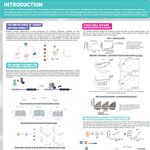Metabolic therapy for the adjuvant treatment of malignant brain tumors
-
Adrienne C. Scheck, PhD
Associate Professor, Neuro-Oncology Research, Barrow Brain Tumor Research Center, Barrow Neurological InstituteBIOGRAPHY
Human malignant glioma is a uniformly fatal disease, causing over 14,000 deaths in the US this year. Adults diagnosed with malignant brain tumors have a median survival of approximately 15 months, regardless of currently available treatments which include surgery, radiation and chemotherapy. Improvement in the survival of these patients requires the design of new therapeutic modalities that take advantage of common phenotypes. One such phenotype is the metabolic dysregulation that is a hallmark of cancer cells. This dysregulation causes them to rely preferentially on glucose as an energy source. It has therefore been postulated that one approach to treating brain tumors may be by metabolic alteration such as that which occurs through the use of the ketogenic diet (KD). The KD is high-fat, low-carbohydrate and protein diet that causes a reduction in blood glucose and an increase in blood ketones. It has been utilized for the non-pharmacologic treatment of refractory epilepsy and has a long safety record. We and others have shown that this diet enhances survival in a mouse model of malignant brain tumors when used alone, and we have shown that the KD potentiates the antitumor activity of both temozolomide (TMZ) and radiation. In addition to improvements in survival, the KD appears to reduce peritumoral edema, inflammation, angiogenesis, and cell invasion. Our preclinical data have led to the opening of a clinical trial at the Barrow Neurological Institute using the KD for the upfront treatment of patients with glioblastoma multiforme in addition to radiation and TMZ.
While the mechanisms through which the ketogenic diet enhances survival have not been fully elucidated, a broad range of gene expression changes have been demonstrated, providing a framework for future studies. An understanding of the mechanisms through which the ketogenic diet exerts its effects will facilitate its use for the treatment of brain tumors in combination with current and future therapeutics.
Learning objectives:
- Understand the potential of metabolic alteration in the treatment of malignant brain tumors.
- Understand some of the mechanisms through which the ketogenic diet alters brain tumor growth.
Metabolic therapy for the adjuvant treatment of malignant brain tumors
Please update your information
Certificate of Attendance
DOWNLOAD CERTIFICATE




